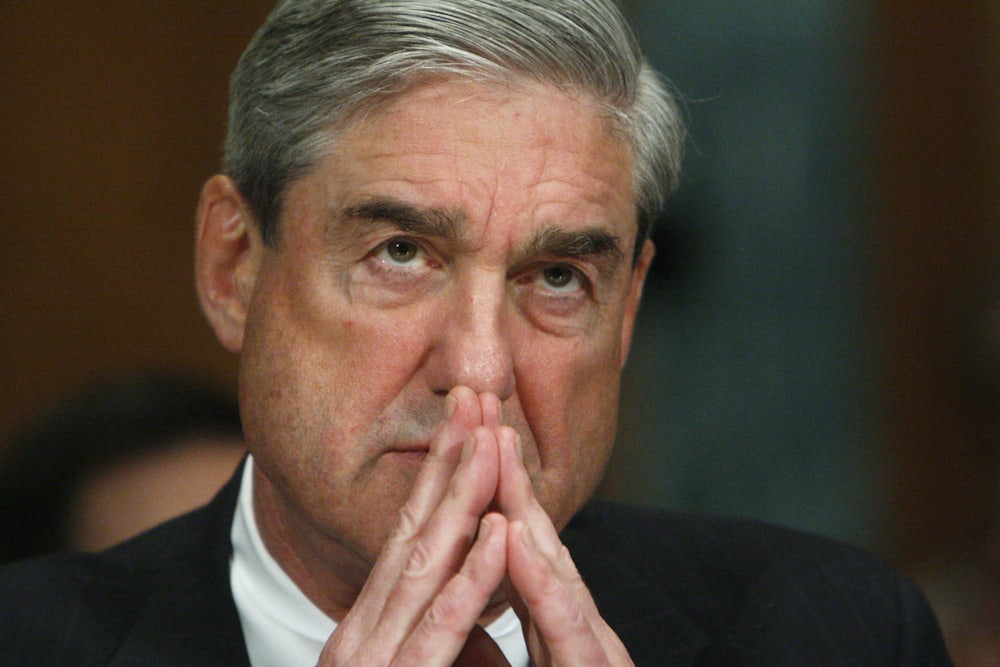On Wednesday at 6pm—the time when news drops now—a number of outlets reported that the Justice Department has appointed former FBI Director Robert Mueller to serve as a special counsel overseeing the investigation into Russian meddling in the 2016 election and contacts between Russian officials and the Trump campaign. Deputy Attorney General Rod Rosenstein, who served as the first scapegoat in the firing of James Comey, made the announcement. “I determined that it is in the public interest for me to exercise my authorities and appoint a special counsel to assume responsibility for this matter,” Rosenstein said in a statement. “My decision is not a finding that crimes have been committed or that any prosecution is warranted. I have made no such determination.”
Mueller, who led the FBI during both the Bush and Obama administrations—he took over on September 4, 2001, and was replaced by James Comey in 2013—will add credibility to an investigation that has sorely lacked it. His appointment is a tacit acknowledgment that the top brass at the Department of Justice had lost all credibility after Comey’s firing, which tainted Attorney General Jeff Sessions, who had supposedly recused himself from the investigation, Rosenstein, and President Trump. There have been calls for an independent investigation since Trump assumed office, but they didn’t really boil over until Comey’s firing and the revelations that followed.
Mueller will still answer to Rosenstein—and, by extension, Trump, which means that it’s possible that this investigation’s independence will also be questioned. (Special counsels are not quite independent.) But he nevertheless appears to have been given wide latitude. According to The Washington Post, “Under the order signed Wednesday by Rosenstein, Mueller is tasked with investigating ‘any links and/or coordination between the Russian government and individuals associated with the campaign of President Donald Trump’ as well as ‘any matters that arose or may arise directly from the investigation’ and any other matters that fall under the scope of the Justice Department regulation covering special counsel appointments.”
That is very bad news for Trump, who apparently only learned of Mueller’s appointment 30 minutes before it became public. As we learned from Ken Starr’s Whitewater investigation in the 1990s, independent investigations often mutate, uncovering shady dealings that fall outside of their initial scope. Trump may have fired Comey to preempt this exact outcome—a rangy investigation—and history suggests that if you start to turn over stones in Trumpland, you’ll find something sooner rather than later. After being repeatedly undercut and compromised by Trump and Republicans, the Russia investigation just got much more serious.
